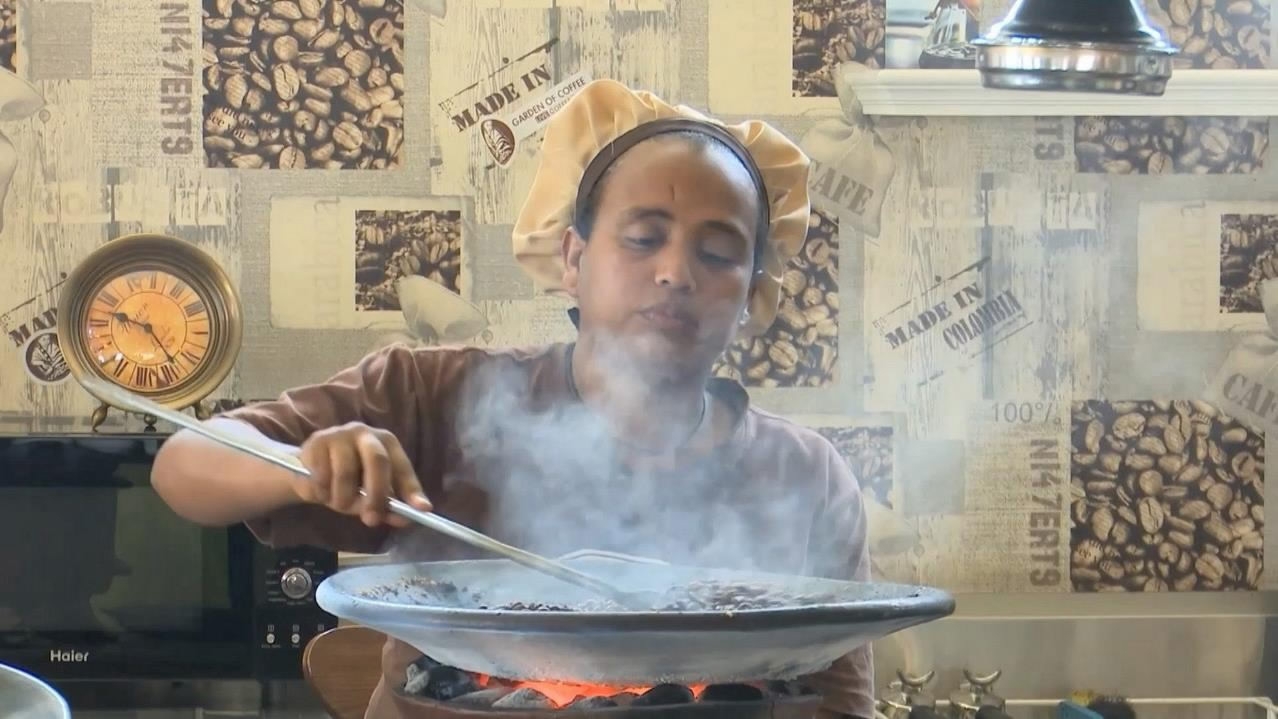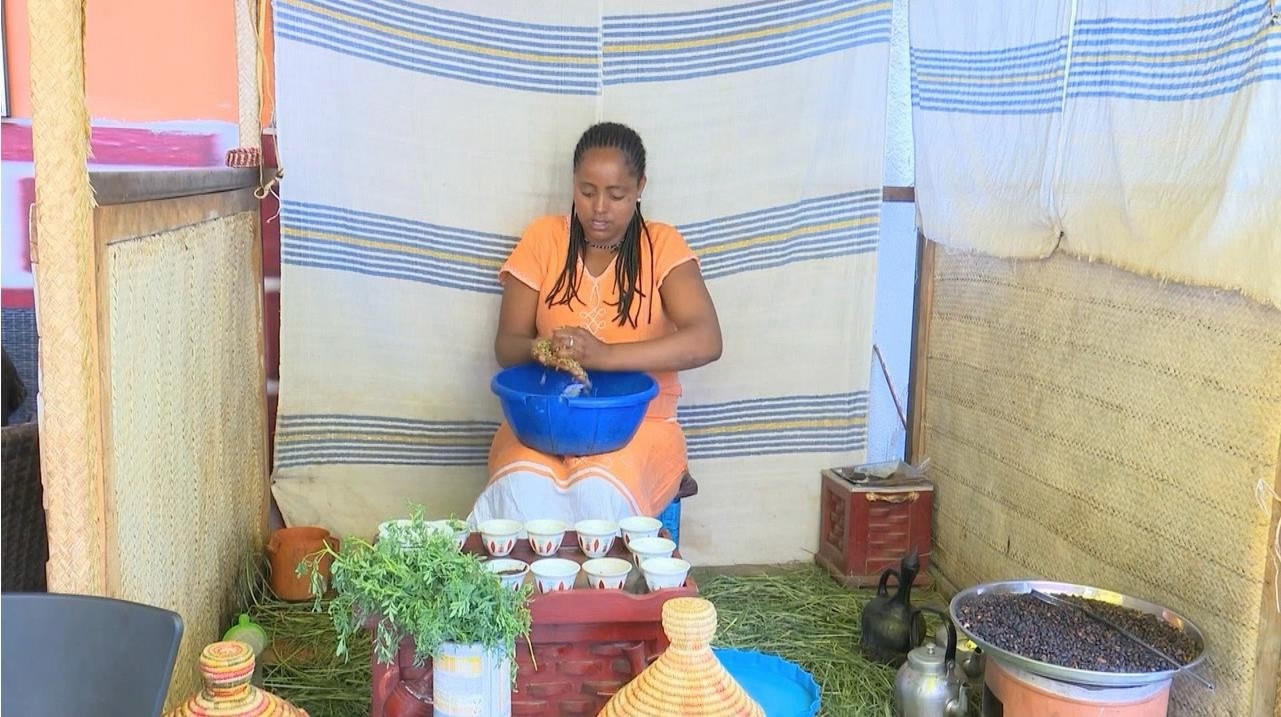
Culture
15:07, 02-Oct-2017
The Big Picture: Coffee part and parcel of Ethiopian lives
By CGTN's Girum Chala

Throughout history, Ethiopia is known to be the birthplace of coffee. In the country, coffee at first was said to be used as an edible stimulus beverage rather than a drink. The people of Ethiopia with different cultures and traditions have made coffee part of their day to day lives.
Fast forward to the present day, coffee is the biggest foreign currency earner for this eastern Africa nation.
But what is more interesting is about 60 percent of the coffee collected from the vast coffee farmlands across the country are consumed locally. Once you are in an Ethiopian household, the first respectful treat you can expect is a cup of coffee.

The traditional way to roast Ethiopian coffee. /CGTN Photo
The traditional way to roast Ethiopian coffee. /CGTN Photo
"My day won't be as productive and interesting as it could get without my morning and after lunch coffee. It's a must for me as an Ethiopian to have coffee as part of my daily activities," said Tesfaye Alemu, a civil servant residing in Addis Ababa.
Coffee in Ethiopia, traditionally, is served with sugar or salt. And you should not be surprised if culturally prepared butter or a spicy leaf is presented for you alongside your cup of coffee.

Ethiopian coffee market. /CGTN Photo
Ethiopian coffee market. /CGTN Photo
It's all part of making the coffee get as fancy and sweet as possible. But for Ethiopians coffee does also play a role in creating strong social bonds between different communities. It's customary to invite a neighbor for a cup or two of coffee and chat around the traditional coffee ceremony.
It's not all sunshine for the Ethiopian coffee making and drinking traditions, however. With the coming of modern coffee making machines and the birth of cafes, it looks like the culture of sitting around coffee cups as it was known for thousands of year is fading away.

Kemeria Hussen, the traditional coffee brewer, is preparing coffee in classical Ethiopian way by washing it first. /CGTN Photo
Kemeria Hussen, the traditional coffee brewer, is preparing coffee in classical Ethiopian way by washing it first. /CGTN Photo
"We have to work hard to preserve our traditional coffee ceremonies, otherwise I'm afraid we might lose it all before we know it," said Tesfaye.
For now, Ethiopia and Ethiopians enjoy the taste and aroma of their Arabica coffee at their homes and in cafes. And benefit from the hundreds of millions of dollars coffee sells bring from abroad.
8326km

SITEMAP
Copyright © 2018 CGTN. Beijing ICP prepared NO.16065310-3
Copyright © 2018 CGTN. Beijing ICP prepared NO.16065310-3